The American Educational Research Association (AERA) and IEL have been co-hosting education policy forums since 1983 as a vehicle to highlight research, policy, and practice in education. These monthly luncheons feature many of the best researchers, thinkers, and leaders in education.
2015-16 FORUMS
September 23 – The Impact of Summer Learning with Jennifer McCombs
August 2 – Teacher Views and Voices with Maria Ferguson
July 15 – A Conversation with the Director of the Institute of Education Sciences with Ruth Neild
June 17 – An Insider Perspective on Standards-Based Education Reform with Michael Cohen
 |
Michael Cohen, President, Achieve Michael Cohen has worked to promote standards-based education reform in significant and varied leadership positions for much of his career. He has served as director of education policy for the National Governors Association (NGA), director of planning for the National Association of State Boards of Education (NASBE), assistant secretary of elementary and secondary education in the U.S. Department of Education, and education advisor to the president during the Clinton Administration. Since 2003, Michael has been president of Achieve, an organization dedicated to standards-based education, and has become a leading spokesperson for improved standards and assessments. Under his leadership, Achieve has partnered with PARCC to help develop and promote the Common Core State Standards. Under his leadership, Achieve also has formed the American Diploma Project Network to develop state standards for improving preparation for postsecondary education. Michael will share his thoughts about the historical development of the standards-based reform movement in the U.S. and will identify critical political issues confronting the movement at present. He also will provide his perspective on the future of the movement. |
April 15 – Samuel Halperin Lecture and Youth Public Service Award with Michele Cahill
 |
Michelle Cahill, Distinguished Fellow in Education and Youth Development, National Center for Civic Innovation AYPF founder Samuel Halperin believed strongly in the value of public service and the potential for education to lift youth out of poverty and to change their lives. At the second Samuel Halperin Lecture and Youth Public Service Award, AYPF and IEL honored Ebony Rempson, whose dedication to these ideas embodies Halperin’s work and life. This year, the Lecture was presented by Michele Cahill, Distinguished Fellow in Education and Youth Development at the National Center for Civic Innovation. Cahill has a strong commitment to advancing youth policy and working to expand opportunities for disconnected youth. Rempson, a 21-year-old DC native and AmeriCorps volunteer, spoke about her personal struggles on her path to public service and her goal of supporting other young African-American women. Click here to read the the transcript of Michele Cahill’s lecture. Click here to read Ebony Rempson’s winning essay. |
March 17 – Education Governance, Politics, and Progress in DC with David Grosso
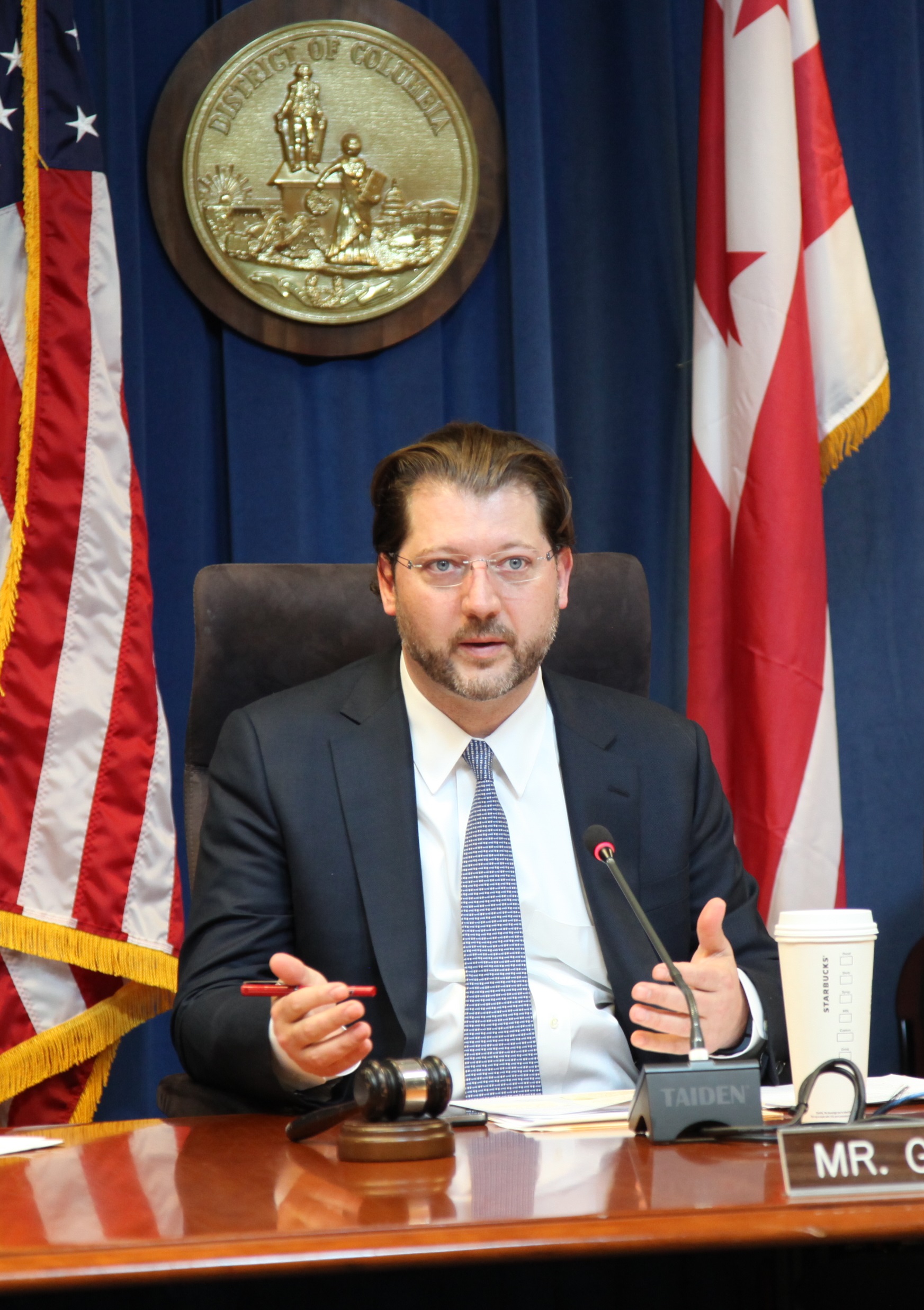 |
David Grosso, Chairperson, Committee on Education, DC City Council Who influences education policy in DC? In addition to the city council, there are the mayor and the deputy mayor for education, the state board of education, the public charter school board, the community schools advisory board, and many others. David Grosso is Chairperson, Committee on Education for the DC City Council. David was elected on an ethical reform platform in 2012 and he became chair of the Committee on Education in 2014. David spoke about the unique governance structure for education in the District, and shared his goals and strategies for further improvement of education in the nation’s capital. What education changes can be achieved by David’s committee to improve education and the lives of DC’s children? David has big ideas about improvements to be made in the education system, many of them involving health and community issues. Learn more about David Grosso here. |
February 26 – Foundations for Young Adult Success with Jenny Nagaoka
 |
Jenny Nagaoka, Deputy Director, UChicago Consortium on School Research Amid growing recognition that strong academic skills alone are not enough for young people to become successful adults, Foundations for Young Adult Success: A Developmental Framework offers wide-ranging evidence to show what young people need to develop from preschool to young adulthood to succeed in college and career, have healthy relationships, be engaged citizens, and make wise choices. It concludes that rich experiences combining action and reflection help children develop a set of critical skills, attitudes, and behaviors. And it suggests that policies should aim to ensure that all children have consistent, supportive relationships and an abundance of these developmental experiences through activities inside and outside of school. The Wallace Foundation awarded a competitive grant to UChicago CCSR in 2013 to undertake the project, which included a review of relevant literature spanning decades as well as interviews with national experts in research, policy and practice, and young people and the adults who work with them in schools, programs and agencies throughout Chicago. The report offers evidence to show how, where, and when the “key factors” to success develop from early childhood through young adulthood, emphasizing the kinds of experiences and supportive relationships that guide the positive development of these factors. Recognizing that there are no silver bullets to promoting social-emotional learning, the report emphasizes a range of factors that build on one another over time. It also emphasizes factors that are particularly malleable, as well as the age at which each of the key factors comes into prominence, offering adults the most promising window for positive intervention. Click here to download Foundations for Young Adult Success: A Developmental Framework. Learn more about Jenny Nagaoka here. Click here to read a recap of the event on Huffington Post. |
January 29 – Student Testing in America’s Great City Schools with Raymond Hart
|
Raymond Hart, Director of Research, Council of the Great City Schools On October 26, 2015, viewers of the PBS News Hour heard host Gwen Ifill say: “In a policy reversal the Obama Administration, which has supported assessment of students and teachers, has reversed its policy and now says standardized testing has gotten out of hand.” As many will have noted, this reversal came on the heels of a report on the amount of testing in urban schools by the Council of the Great City Schools. Our policy forum speaker will be the person responsible collecting and synthesizing the data at the heart of the report, Raymond Hart. View the NewsHour video here. Click here to download Student Testing in America’s Great City Schools: An Inventory and Preliminary Analysis. Learn more about Raymond Hart here. Click here to read a recap of the event on Huffington Post. |
December 8 – Reframing Education Outcomes with Yong Zhao
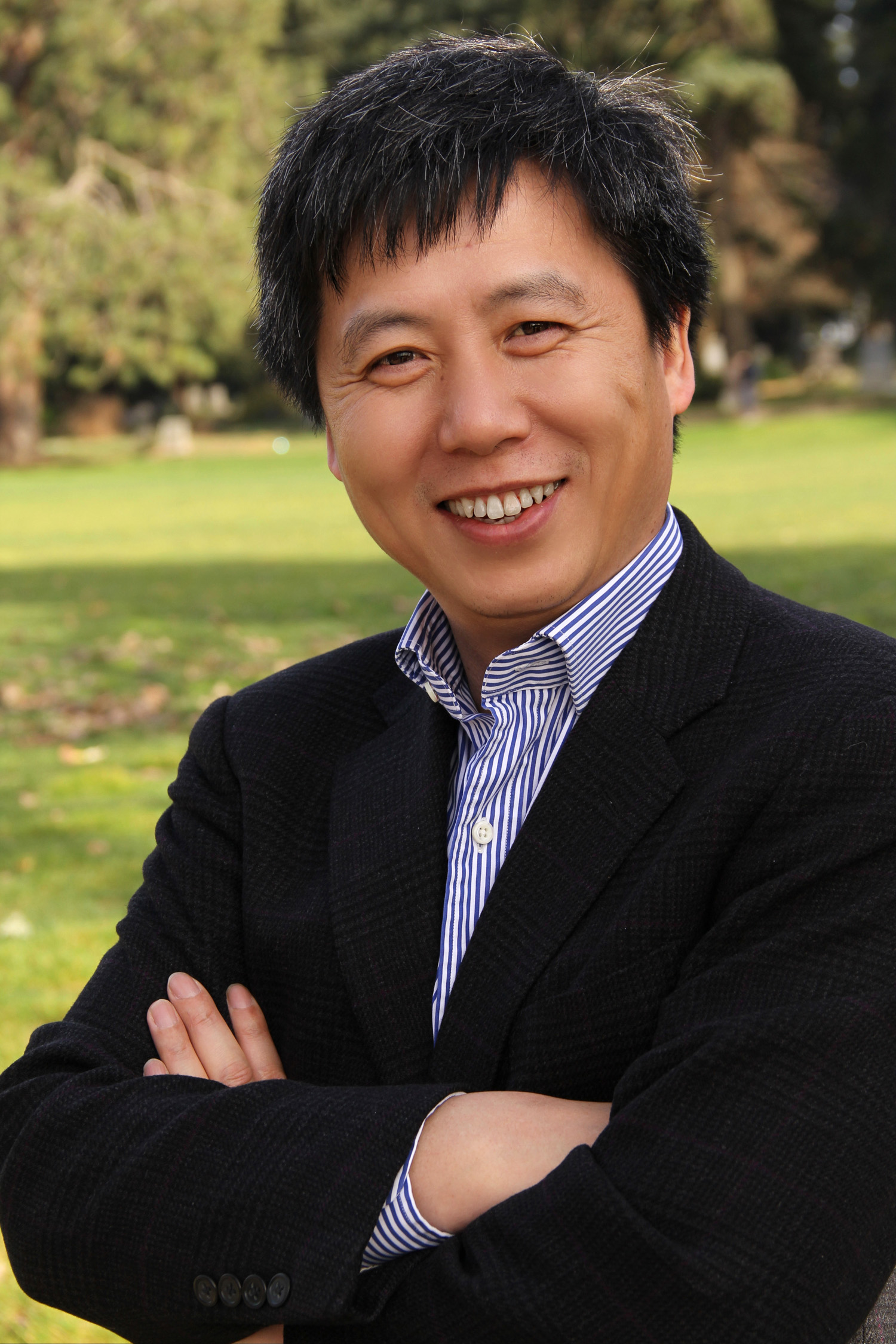 |
Yong Zhao, Presidential Chair and Director of the Institute for Global and Online Education, University of Oregon College of Education Overemphasizing test scores as measures of achievement is potentially harmful to education. The book editors identify key traits such as mindset, motivation, social skills, creativity, and entrepreneurial spirit that students, teachers, and schools need to acknowledge and cultivate. Educators are asked to shift the evaluation paradigm to focus on a multiplicity of skills necessary for success in the 21st century. The discussion will examine the problems with current measures of students’ skills, discuss strategies for measuring global competences, and explore how and why are nonacademic qualities valuable to long-term educational outcomes. Click here to purchase Counting What Counts: Reframing Education Outcomes. Learn more about Yong Zhao here. Click here to read a recap of the event on Huffington Post. |
November 20 – The Global Challenge of Educating High-Ability Students with Chester Finn, Jr.
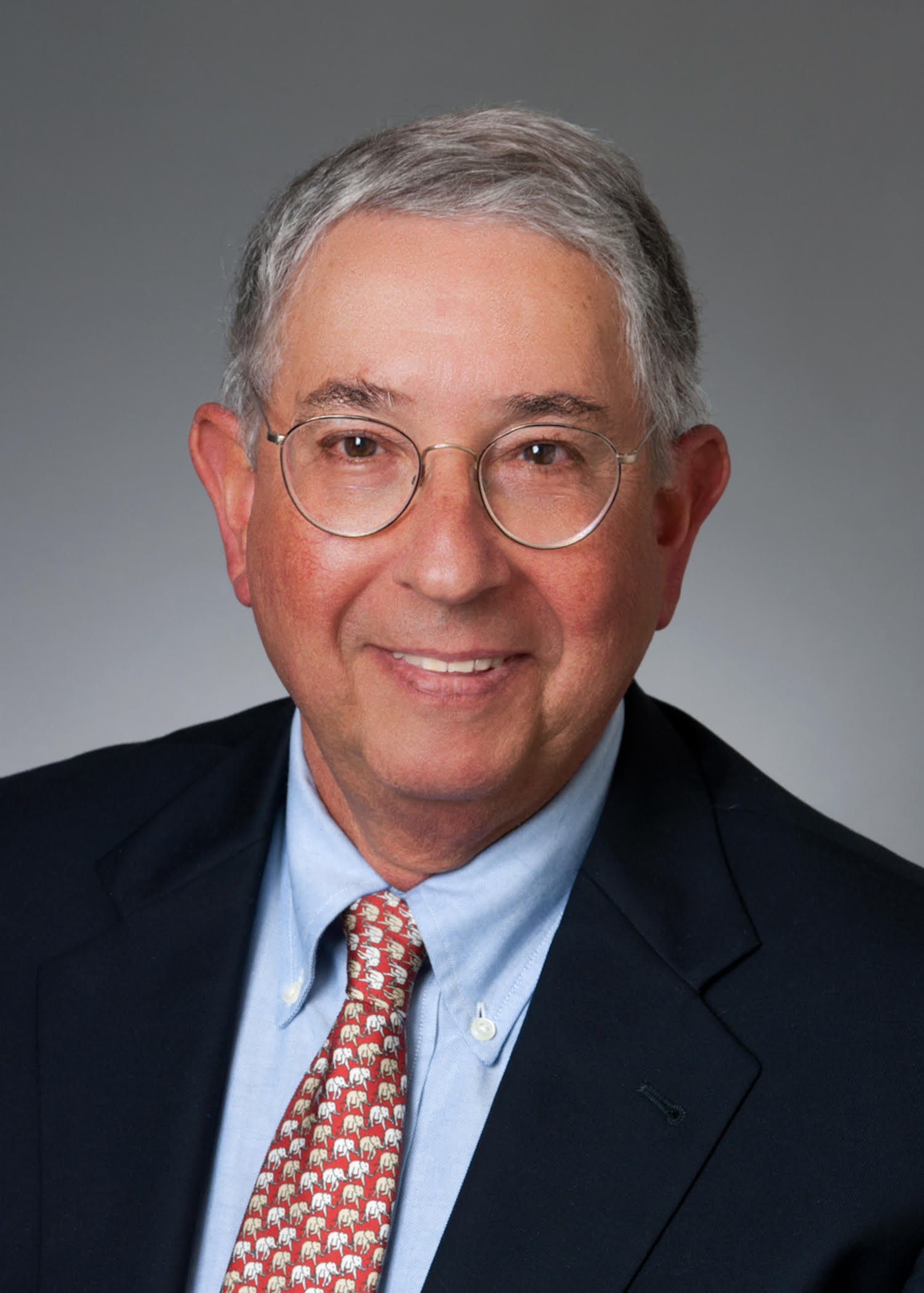 |
Chester Finn, Jr., Distinguished Senior Fellow and President Emeritus, Thomas B. Fordham Institute In this provocative volume, Chester E. Finn, Jr., and Brandon L. Wright argue that, for decades, the United States has done too little to focus on educating students to achieve at high levels. The authors identify two core problems: First, compared to other countries, the United States does not produce enough high achievers. Second, students from disadvantaged backgrounds are severely underrepresented among those high achievers. The authors describe educating students to high levels of achievement as an issue of both equity and human capital: talented students deserve appropriate resources and attention, and the nation needs to develop these students’ abilities to remain competitive in the international arena. The authors embark on a study of twelve countries and regions to address these issues, exploring the structures and practices that enable some countries to produce a higher proportion of high-achieving students than the United States and to more equitably represent disadvantaged students among their top scorers. Based on this research, the authors present a series of ambitious but pragmatic points that they believe should inform U.S. policy in this area. Click here to purchase Failing Our Brightest Kids: The Global Challenge of Educating High-Ability Students. Learn more about Chester Finn, Jr. here. |
October 30 – Preparing and Supporting School Principals with Brenda Turnbull
|
Brenda Turnbull, Researcher, Policy Studies Associates, Inc. How do we strengthen our pipelines for preparing and supporting school principals? How do we build districts’ capacity to advance their priorities through school leadership? What is the impact of the pipelines on student achievement? Join Brenda Turnbull (speaker), researcher at Policy Studies Associates, Inc., and Lynda Tredway (discussant), senior associate for the Leaders for Today and Tomorrow Project at IEL, for a discussion on key components that strengthen districts’ school leadership pipelines. Key Takeaways Learn more about Brenda Turnbull here. |
2014-15 FORUMS
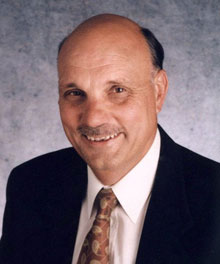 |
Michael Kirst, President, California State Board of Education; Emeritus Professor of Education, Stanford University A number of important education reforms have recently been enacted in the nation’s most populous state that have national implications. California has taken a different approach than most other states in not acquiescing to federal expectations and independently pursuing significant reforms related to the Common Core and school finance. The evolution of Common Core in California has been relatively non-controversial and embraced by a broad array of stakeholders. Unlike the process in so many states, teacher evaluation and high-stakes accountability were left out of the initial stages of implementation, allowing teachers and students time to adjust. California’s higher education segments likewise have been involved and are supportive. The new school finance legislation in California consolidated a wide array of categorical programs and represents a major departure in school funding policy. Most other jurisdictions have highly centralized state finance models. California’s new local control funding formula gives local school systems much greater financial autonomy as well as responsibility for accountability. This new California funding approach obviously has profound significance for educational governance and equity issues. Click here to read a leadership profile on Michael Kirst. |
May 29 – Presidents, Congress, and the Public Schools with Jack Jennings
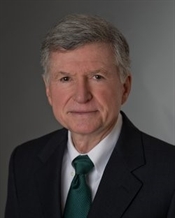 |
Jack Jennings April 2015 marked the fiftieth anniversary of the Elementary and Secondary Education Act (ESEA), the landmark legislation that has provided the foundation of federal education policy in the United States. In Presidents, Congress, and the Public Schools: The Politics of Education Reform, longtime policy analyst Jack Jennings examines the evolution of federal education policy and outlines a bold and controversial vision for its future. Jennings brings an insider’s knowledge to this account, offering a vivid analysis of federal efforts in the education arena and revealing some of the factors that shaped their enactment. His rich descriptions and lively anecdotes provide pointed lessons about the partisan climate that stymies much federal policy making today. Click here to purchase Presidents, Congress, and the Public Schools: The Politics of Education Reform. Learn more about Jack Jennings here. |
April 20 – Samuel Halperin Lecture and Youth Public Service Award with Hilary Pennington
 |
Hilary Pennington, Vice President, Education, Creativity, and Free Expression, Ford Foundation AYPF founder Samuel Halperin believed strongly in the value of public service and the potential for education to lift youth out of poverty and to change their lives. On Monday, April 20, 2015, AYPF and IEL honored Efrem Ayalew, whose dedication to these ideas embodies Halperin’s work and life. The event’s inaugural lecturer, Hilary Pennington, Vice President of the Ford Foundation’s Education, Creativity and Free Expression program, spoke before Efrem, and focused on not only the progress made, but also the significant amount of work to be done in improving youth outcomes. Large gaps in postsecondary achievement, employment, and wages had not improved enough for disconnected youth, or “the forgotten half,” said Pennington. “You take all these trends together and you have to be sobered at where we started from, despite the enormous progress that we’ve made.” Pennington also added that in order to address the challenges of improving youth outcomes, efforts will have to be comprehensive and address all aspect’s of youth’s lives. “What Sam would remind us is that the responses we should be aiming for are not responses that divide and segment, they are responses that see young people as whole beings,” said Pennington. Click here to watch a video of Hilary Pennington’s lecture. Learn more about Hilary Pennington here. |
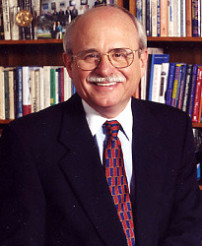 |
Christopher Cross, Chairman, Cross & Joftus In this volume, political insider Christopher Cross updates his critically acclaimed bestseller with new chapters and important new insights into future education policy. Cross draws on his own experience in Washington, along with research and interviews, to present a highly readable history of federal education policy, from WWII to the Obama administration. The book highlights the key players who helped shape federal policy because, as Cross writes in his introduction, ”policy development is woven of personalities, events, and timing.” This fascinating chronicle demonstrates, among other things, how federal policy has been a constant influence on what states and local districts do, especially with respect to students most at-risk. Click here to purchase Political Education: Setting the Course for State and Federal Policy, 2nd Edition. Learn more about Christopher Cross here. |
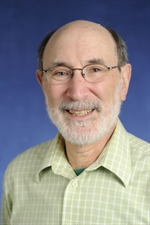 |
Karl Alexander, Academy Professor and Research Professor of Sociology, Johns Hopkins University West Baltimore stands out in the popular imagination as the quintessential “inner city.” Indeed, with the collapse of manufacturing jobs in the 1970s, the area experienced a rapid onset of poverty and high unemployment, with few public resources available to alleviate economic distress. But in stark contrast to the image of a perpetual “urban underclass” depicted in television by shows like The Wire, sociologists Karl Alexander, Doris Entwisle, and Linda Olson present a more nuanced portrait of Baltimore’s inner-city residents that employs important new research on the significance of early life opportunities available to low-income populations. The Long Shadow focuses on children who grew up in West Baltimore neighborhoods and others like them throughout the city, tracing how their early lives in the inner city have affected their long-term well-being. Although research for this book was conducted in Baltimore, that city’s struggles with deindustrialization, White flight, and concentrated poverty were characteristic of most East Coast and Midwest manufacturing cities. The experience of Baltimore’s children who came of age during this era is mirrored in the experiences of urban children across the nation. Click here to purchase The Long Shadow: Family Background, Disadvantaged Urban Youth and the Transition to Adulthood. Learn more about Karl Alexander here. |
December 19 – Doing the Right Thing for Children: Eight Qualities of Leadership with Maurice Sykes (DC EPFP 78-79)
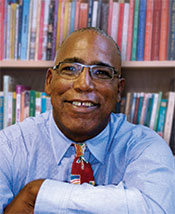 |
Maurice Sykes, Director, Early Childhood Leadership Institute, University of the District of Columbia Maurice Sykes has made advocating for and advancing high-quality early childhood education his life’s work. Through mentorships, presentations, and personal example, Maurice challenges and inspires educators to become effective leaders who make a difference in children’s lives. He does the same in his book, Doing the Right Thing for Children: Eight Qualities of Leadership as he shares stories of the hills and valleys of his personal and professional journeys throughout the presentation of eight core leadership values: human potential, knowledge, social justice, competence, fun and enjoyment, personal renewal, perseverance, and courage. Click here to purchase Doing the Right Thing for Children: Eight Qualities of Leadership. Click here to read an EPFP alumni blog post on Maurice Sykes. |
October 31 – Time for Learning: Top 10 Reasons Why Flipping the Classroom Can Change Education with Kathleen Fulton (DC EPFP 04-05)
 |
Kathleen Fulton, Writer and Education Consultant Is “flipped education” simply the latest fad in education, or will it change the pedagogy of education and expand the horizons of teachers and students? Kathleen Fulton believes the flipped classroom has the potential for bringing instructional reforms to education. In this Educational Policy Forum, she shared her experiences and perspective on the use of flipped classrooms in the K-12 settings in math and science education. Kathleen’s perspective is shaped by her many experiences working with technology and by having witnessed the many promising innovations that ultimately failed to be sustainable. She shared her observations of the applications of “flipping” in K-12 education, with special emphasis on STEM education. She also discussed the essential technological core of flipped classrooms and the challenges faced by teachers and schools systems in achieving successful learning outcomes. Click here to purchase Time for Learning: Top 10 Reasons Why Flipping the Classroom Can Change Education. Click here to read an EPFP alumni blog post on Kathleen Fulton. |